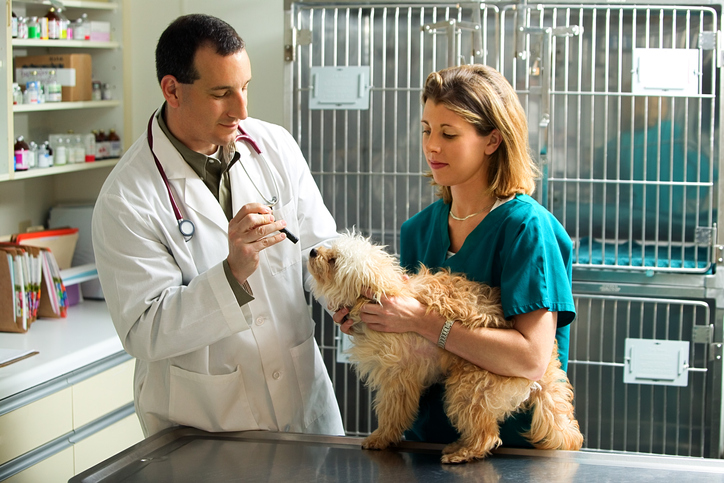As a child, I would always watch in awe as the zoo’s veterinarian skillfully cared for the animals, inspiring me to pursue a similar path. Now, as an experienced zoo veterinary technician, I eagerly share my journey to help others embark on this rewarding career.
Image: www.vetrecordjobs.com
The role of a zoo veterinary technician is much broader than you might think. We don’t just assist veterinarians during exams and surgeries; we also play a vital role in animal health and welfare, including monitoring their diets, providing enrichment activities, and ensuring their living conditions meet their specific needs.
Education and Training
Pursuing a formal education is the first step towards becoming a zoo veterinary technician. Many technical schools and colleges offer associate’s degrees in veterinary technology, which will provide you with the necessary scientific foundation and practical skills.
Prerequisites
Prior to enrollment in an accredited veterinary technology program, you will typically need to have completed coursework in:
- Biology
- Chemistry
- Veterinary science
Practical Experience
Hands-on training is essential for mastering the technical aspects of the profession. Look for programs that include internships or clinical rotations at zoological hospitals or wildlife rehabilitation centers.

Image: brunasurfisthina.blogspot.com
Zoo-Specific Skills
While a foundation in veterinary technology is crucial, developing zoo-specific skills will set you apart as a highly sought-after candidate.
Wildlife Medicine
Understanding the unique health concerns and treatment protocols for zoo animals is essential. Special courses or workshops in this area can provide valuable knowledge.
Animal Behavior
Behavior can significantly impact animal health and welfare. Learning to interpret animal behavior and respond appropriately is essential for effective care.
Job Outlook and Career Advancement
Zoo veterinary technicians are in high demand as zoos prioritize animal welfare and expand their conservation efforts.
Career Path
With experience and additional training, zoo veterinary technicians can advance to positions such as:
- Supervisory technician
- Head veterinary technician
- Zoo animal care manager
Professional Development
Continuing education and professional development are key to staying abreast of the latest advancements in zoo medicine. Attend conferences, webinars, and workshops to enhance your skills.
Tips and Expert Advice
Based on my experience, here are some tips for aspiring zoo veterinary technicians:
- Gain Hands-On Experience: The more exposure you have to working with zoo animals, the better prepared you will be.
- Excel Academically: Maintain high grades in your veterinary technology program to increase your chances of acceptance into a competitive internship.
- Network: Attend industry events and connect with zoo professionals to learn about job openings and gain valuable insights.
Frequently Asked Questions
Q: Do I need a bachelor’s degree to become a zoo veterinary technician?
A: No, an associate’s degree in veterinary technology or a related field is sufficient.
Q: Are there certification programs available for zoo veterinary technicians?
A: Yes, some states offer optional certification programs to enhance your credentials.
Q: What are the typical work hours for zoo veterinary technicians?
A: Due to the nature of animal care, work schedules can vary and may include weekends and holidays.
How To Become A Zoo Veterinary Technician
Conclusion
Becoming a zoo veterinary technician requires dedication, passion, and a deep commitment to animal welfare. By following the path outlined above, you can embark on an extraordinary career in which you play a crucial role in protecting and preserving wildlife.
Are you ready to explore the fascinating world of zoo animal care? Take the first step towards a rewarding career today!